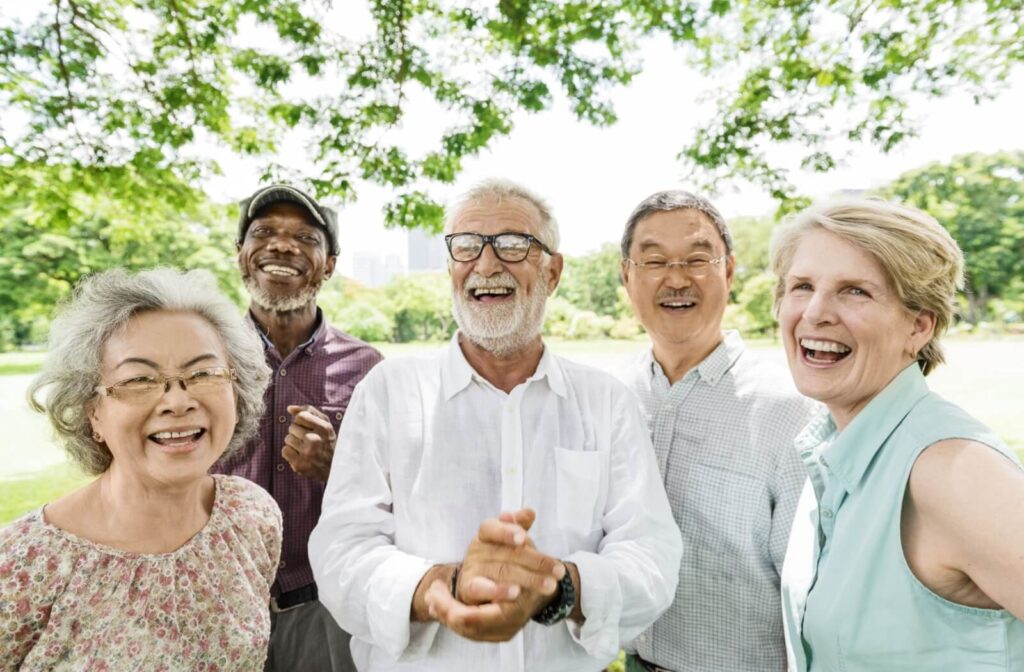Community living, also known as group living or congregate housing, refers to a type of housing where individuals with similar needs and lifestyles live together in a shared space. This can include independent living communities, assisted living communities, retirement communities, and co-housing communities.
One of the key benefits of community living is socialization. As humans, we are social creatures and thrive when we have meaningful connections with others. In community living settings, residents have the opportunity to interact with their neighbors on a regular basis and form friendships based on shared interests and experiences.
In independent living communities specifically, socialization is often encouraged through planned activities and events such as game nights, exercise classes, book clubs, and group outings. These activities not only provide opportunities for socialization but also promote a sense of belonging and purpose within the community.
The Importance of Socialization & Support for Older Adults
For older adults in community living, socialization, and support are crucial for maintaining physical and mental well-being. As we age, our social networks may start to dwindle due to retirement, relocation, or loss of loved ones. This can lead to feelings of isolation and loneliness which have been linked to a variety of health issues including depression, anxiety, and cognitive decline.
By living in a community setting where social connections are readily available, older adults can combat these negative effects and improve their overall quality of life. Regular interactions with others can help individuals stay mentally sharp, reduce stress levels, boost self-esteem, and provide a sense of purpose.
Additionally, community living often offers access to on-site support services such as housekeeping, transportation assistance, and meal preparation. These services not only make daily life easier but also provide opportunities for socialization with staff and other residents.
Encouraging Socialization & Support in Community Living

To promote a strong sense of community and encourage socialization among residents, here are key strategies independent living communities implement:
- Offer a diverse range of activities: A variety of options for activities and events will appeal to different interests and abilities, ensuring that all residents have an opportunity to participate.
- Create welcoming common spaces: Common areas such as lounges, game rooms, or outdoor seating areas can serve as gathering places for residents to socialize informally.
- Facilitate resident-led initiatives: Residents can take the lead in organizing activities or clubs based on their hobbies and interests. This not only encourages socialization but also empowers residents to take an active role in their community.
- Encourage intergenerational interactions: Partnering with local schools or youth groups to visit and engage with residents can provide valuable opportunities for meaningful connections across generations.
- Offer transportation services: Providing transportation for residents to attend off-site events or appointments can help them stay connected with the wider community and maintain important relationships outside of the community.
- Provide easy access to support staff: Having staff members readily available to assist with any needs or concerns can help residents feel more comfortable and secure in their living environment.
- Offer personalized care plans: Each resident has unique needs, and having individualized care plans in place ensures that those needs are addressed effectively.
- Foster a culture of caring: Encouraging empathy and compassion among residents and staff can create a supportive community where everyone looks out for one another.
- Partner with healthcare providers: Collaborating with healthcare professionals allows for comprehensive support for residents’ physical, mental, and emotional well-being.
- Implement technology solutions: Utilizing technology, such as video chatting or social media platforms, can help residents stay connected with family and friends who may not be able to physically visit. Additionally, implementing assistive devices or monitoring systems can enhance the safety and independence of residents.
- Offer educational opportunities: Providing classes or workshops on various topics can not only stimulate the mind but also foster learning and personal growth among residents.
- Promote physical activity: Encouraging regular physical activity through organized exercise classes or outdoor activities can improve overall health and well-being for residents.
- Embrace diversity and inclusivity: Creating a welcoming environment that celebrates different backgrounds, cultures, and beliefs promotes socialization among residents from diverse backgrounds.
- Support resident independence: While providing necessary care and assistance, it is important to also empower residents to maintain their independence and make their own choices whenever possible.
- Encourage community involvement: Organizing events or volunteer opportunities for residents within the larger community can help them feel connected and purposeful.
- Continuously evaluate and improve services: Regularly seeking feedback from residents and staff, as well as implementing improvements based on that feedback, shows a commitment to providing high-quality care.
Enhancing Quality of Life Through Community Living at Juniper
Community living offers a variety of benefits, including socialization and support, for individuals seeking to maintain their independence while also having the opportunity to connect with others. In addition to these benefits, community living can also provide residents with access to on-site amenities and services, as well as a sense of security and belonging.
By choosing to live in a community setting, individuals can enhance their overall quality of life and create lasting connections with their neighbors. At Juniper Village at Lebanon, we strive to provide a welcoming and supportive community for our residents, promoting independence, socialization, and overall well-being.
Contact us today to learn more about our community and how we can help you or your loved one thrive in a community living setting.







